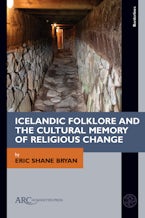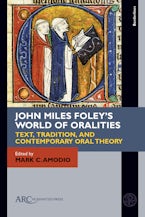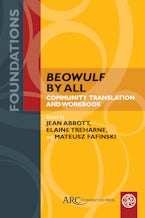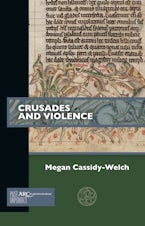- Home
- Borderlines
- literary criticism
- religion
- social science
- Icelandic Folklore and the Cultural Memory of Religious Change
Icelandic Folklore and the Cultural Memory of Religious Change
Series: Borderlines
172 Pages, Trim size: 6 x 9 in
- Paperback
- 9781641894654
- Published: October 2021
- Hardcover
- 9781641893756
- Published: February 2021
- eBook (PDF)
- 9781641893763
- Published: February 2021
Iceland’s uncommon proclivity towards storytelling, its robust tradition of medieval manuscripts, and the “re-oralization” of those narratives after the medieval period, create a body of folktales and legends that have encoded a hidden account of how orthodox and heterodox beliefs (sometimes pagan in origin) intermingled as Christianity, and later Reformation, spread through the North. This volume unlocks that secret story by placing Icelandic folktales in a context of religious doctrine, social history, and Old Norse sagas and poetry. The analysis herein reveals a cultural memory of belief.
This book is available as Open Access.
Eric Bryan is Assoc. Prof. of English at Missouri Univ. of Science and Technology. He has received grants from the Fulbright Program and American Scandinavian Foundation.
The book is structured around five folktales taken from the great collection compiled in the mid-nineteenth century by Jon Arnason and Magnus Grimmson. Bryan situates these in relation to thematically linked stories from Icelandic sagas, Scandinavian literature and, indeed, the wider Indo-European narrative tradition. He is particularly interested in the way in which the Reformation affected the development of stories. Iceland’s long winter nights ensured the continuance of a strong oral tradition. Against a view which sees a popular oral culture preserving pagan resistances opposing a Christianising elite literary culture, Bryan argues that vernacular storytelling represented a continual reworking to achieve a unified religious worldview....
This book is a fascinating exploration of the connections between various Icelandic folktales and a valiant attempt to relate them to religious change. ... I would recommend the book to anyone interested in Icelandic folklore, or indeed the functioning of folklore more generally.
~Lola Sharon Davidson, Journal of the Australian Early Medieval Association 17, no. 2 (2021): 198–200
Among the main questions posed in the introduction are that of proximity of the beliefs of laypeople to the doctrines of the church and that of relationship between post-Reformation beliefs and post-conversion beliefs—and, further, to the pre-Christian pagan beliefs of the
medieval North. This research shows that cultural memory in Iceland resisted replacement of old beliefs with new.[...] [T]he volume makes
a valuable contribution to understanding the changes undergone by beliefs and folklore motifs in the course of time and in the context of differing religious environments.
~Yelena Sesselja Helgadóttir, Speculum 97, no. 3 (2022): 794-96











